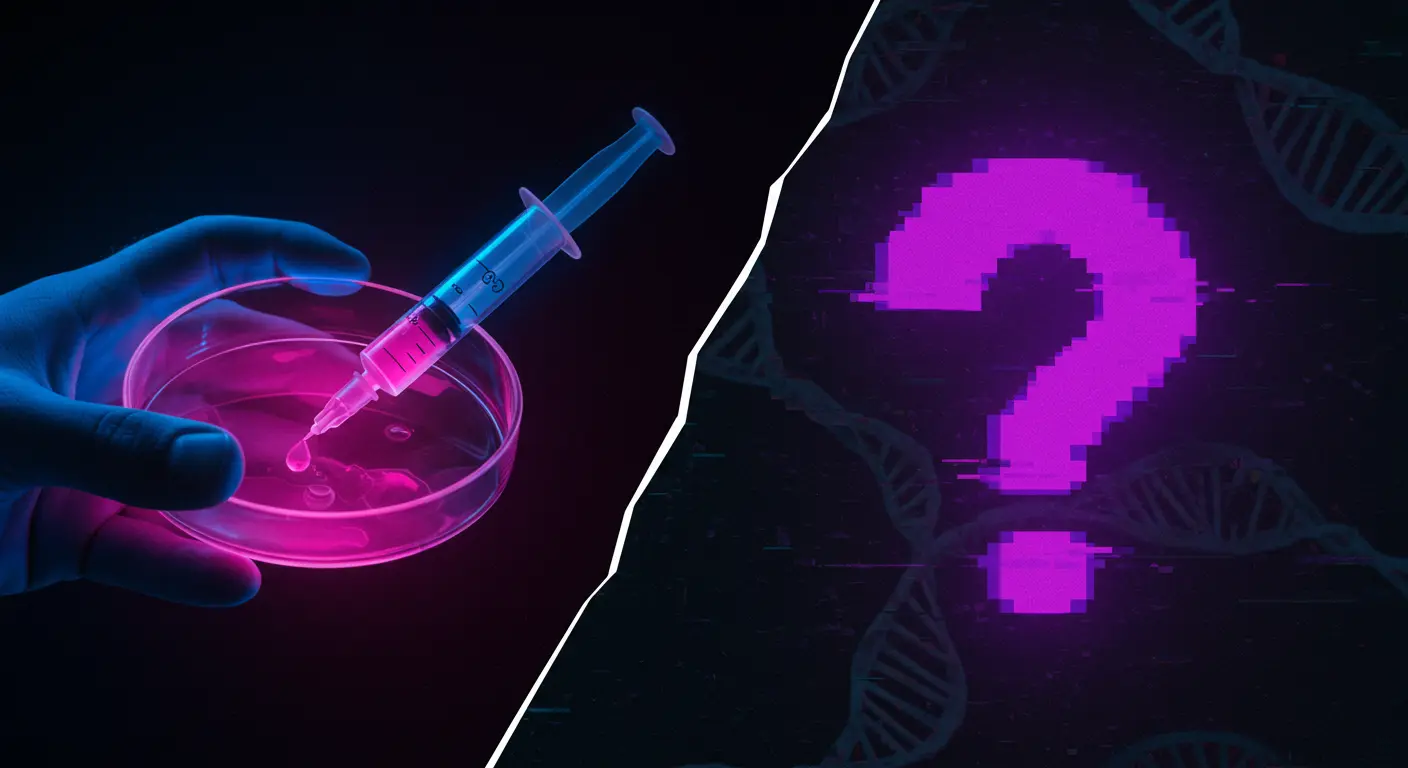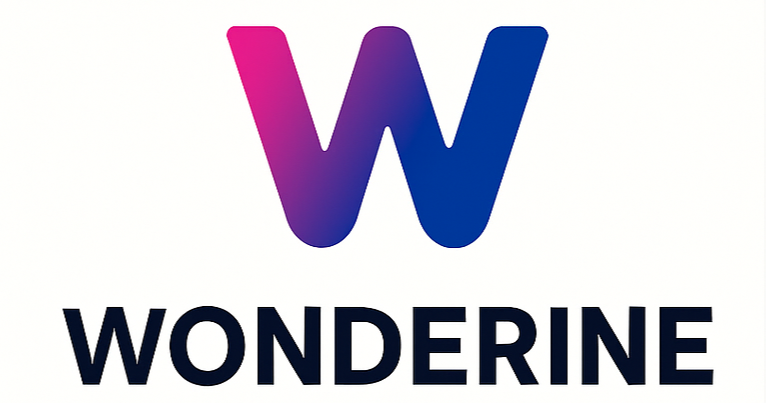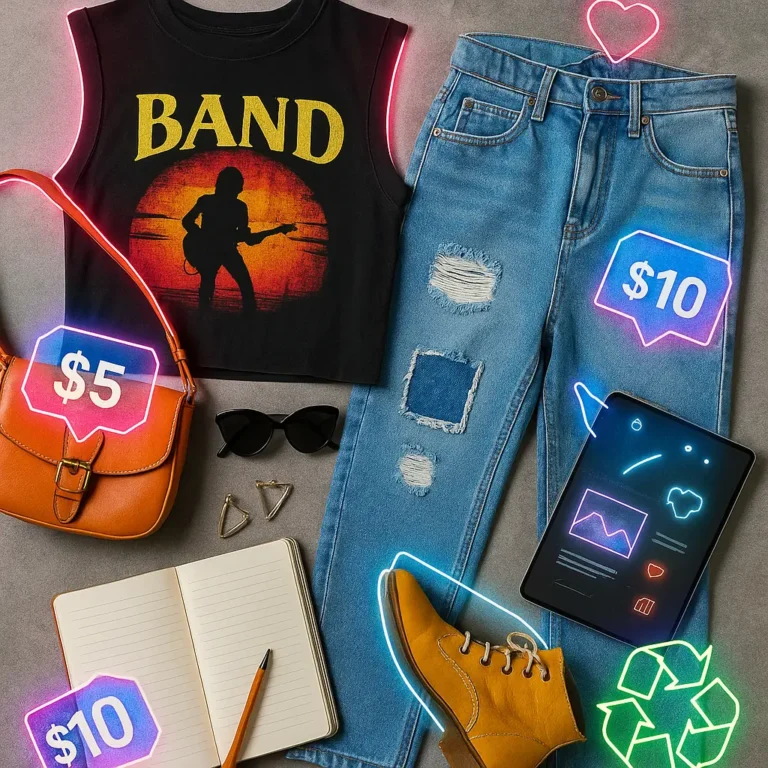Hey Wonderine crew, Nia Spark here, your friendly neighborhood culture hacker! 👋 Let’s talk about an upgrade. Not for your phone, not for your laptop, but for… you. That’s right. The idea of “bio-hacking” – once the domain of super-rich Silicon Valley dudes trying to live forever – is trickling down to the rest of us. And fast.
From the smart ring on your finger tracking your every sleep cycle to the “brain-boosting” mushroom coffee in your mug, we’re all becoming amateur bio-hackers, whether we call it that or not. The promise? A better, stronger, faster, maybe even younger you. But is it all it’s cracked up to be, or are we just beta-testing humanity 2.0? 🤔

The desire to optimize ourselves isn’t new, but the tools and the accessibility? That’s a whole 2025 vibe. We’re talking about a fascinating intersection of wellness, tech, and a dash of sci-fi ambition. So, let’s get into the code of this trend, explore how folks are trying to level up their lives, and ask some big questions along the way.
Ready to explore the mainstreaming of human enhancement? Let’s get to it! 👇
Beyond the Fitbit: Wearable Tech Gets Seriously Intimate 💍🧠

Remember when fitness trackers were just glorified pedometers? Cute. Now, wearable tech is diving deep into our biometrics, giving us a granular look at what’s happening inside our bodies – and the market is booming. According to industry analysts like Grand View Research, the global wearable technology market is projected for massive growth, indicating just how mainstream this is becoming.
- Smart Rings & Bands 2.0: Devices like the Oura Ring or Whoop band are no longer niche. They’re tracking sleep stages with spooky accuracy, monitoring heart rate variability (HRV) as a measure of stress and recovery, and even giving you readiness scores for your day. It’s like having a tiny coach on your finger, constantly whispering data-driven advice. Many are exploring how these devices tie into understanding their biological age versus their chronological one.
- Continuous Glucose Monitors (CGMs) for All?: Originally for diabetics, CGMs are now being adopted by wellness enthusiasts to see how different foods impact their blood sugar in real-time. The idea? Optimize your diet for stable energy and peak performance. No more post-lunch slumps if you can hack your glucose spikes! 📉
- Brain Wave Readers & Neurofeedback Lite: While still more cutting-edge, consumer devices that offer basic neurofeedback (like Muse headbands for meditation) are pointing towards a future where we might try to “train” our brains for focus or calm. It’s all about making the invisible visible and, theoretically, controllable.
The appeal is obvious: knowledge is power. If you can track it, you can improve it, right? But it also raises questions about data privacy and the potential for obsessive self-monitoring. Is all this data actually making us feel better, or just more aware of our supposed imperfections?
“Limitless” Lite: Nootropics, Supplements, and the Quest for Brain Gains 🍄☕️

It’s not just about tracking; it’s about enhancing. The market for nootropics (aka “smart drugs” or cognitive enhancers) and functional foods is exploding. We’re all looking for that mental edge, that extra bit of focus, or a calmer mind.
- Mushroom Mania: Lion’s Mane for focus, Reishi for calm, Cordyceps for energy – adaptogenic mushrooms are suddenly everywhere, from fancy lattes to daily capsules. They’re touted as natural brain boosters and stress relievers, a key component for many in their nervous system self-care routines.
- The Usual Suspects, Upgraded: Creatine isn’t just for gym bros anymore; some research suggests cognitive benefits. Omega-3s, L-Theanine, Bacopa Monnieri – the list of supplements promising to polish your brainpower is long and ever-growing. The challenge? The supplement industry is notoriously under-regulated, so quality and efficacy can be a wild west. For a deeper dive into how these substances are viewed from a scientific standpoint, resources from the National Center for Complementary and Integrative Health (NCCIH) offer valuable, evidence-based information.
- Personalized Nutrition Goes Deeper: Beyond CGMs, services offering DNA-based diet recommendations or microbiome analysis promise hyper-personalized eating plans to optimize everything from energy to mood. The idea is that a well-curated “stack” of nutrients and habits can make all the difference.
The quest for a sharper mind is understandable in our demanding world. But it’s crucial to approach this with a healthy dose of skepticism and prioritize solid, evidence-based strategies (like sleep, exercise, and a balanced diet) before diving headfirst into the pill bottle. Remember, if it sounds too good to be true… 🤷♀️
The DIY Frontier: When Bio-Hacking Gets REALLY Personal (and Risky?) 🧪😬

This is where bio-hacking veers from mainstream wellness into more… experimental territory. And it’s a spectrum, from relatively benign self-experimentation to stuff that raises serious ethical and safety alarms.
- Quantified Self Extreme: Some folks take self-tracking to a whole new level, meticulously logging every morsel of food, every minute of activity, every bodily function, looking for patterns and optimization opportunities. It’s data-driven living, amplified.
- “Grinders” and Implantable Tech: Though still a subculture, “grinders” are individuals who experiment with implanting technology into their bodies – think RFID chips in their hands to open doors or magnets in their fingertips. It’s the ultimate fusion of human and machine, pushing the boundaries of what “cyborg” means. Tech publications like WIRED have been covering these communities for years, showcasing their motivations and innovations.
- The CRISPR Question (Home Edition?): This is the far, far end of the spectrum and deeply controversial. While professional gene editing holds immense promise for treating diseases, the idea of DIY gene editing kits or unsupervised experimentation is fraught with peril and massive ethical concerns. Thankfully, this isn’t mainstream, but the conversation about genetic enhancement and its accessibility is definitely in the air.
The DIY spirit can be incredibly innovative. But when it comes to our own biology, the line between self-improvement and self-harm (or unintended societal consequences) can get blurry, fast. Regulation, ethics, and a whole lot of caution are needed here.
So, Are We Upgrading or Just Adding Pressure? The Big Bio-Hack Backlash 🤔💭
For all the shiny promises of optimization, there’s a growing unease. Is this constant drive to measure, track, and “improve” ourselves actually healthy?
- The Orthorexia Obstacle: The focus on “perfect” eating and “optimal” biometrics can sometimes tip into orthorexia, an unhealthy obsession with healthy eating or an idealized state of health. When does self-tracking become self-punishment?
- The Accessibility & Equity Gap: High-end wearables, expensive supplements, and personalized nutrition plans aren’t cheap. Is bio-hacking creating another divide between the haves and have-nots, this time at a biological level?
- Losing Our Humanity?: If we optimize away all our “flaws” and quirks, do we lose some of what makes us uniquely human? Is there beauty in imperfection, in not always running at 100%? The pressure to be constantly “on” and “optimized” can be exhausting.
The conversation is shifting. There’s a growing appreciation for “good enough,” for intuitive living, and for a more holistic view of health that isn’t just about data points. Sometimes, the best bio-hack is a good night’s sleep, a walk in nature, or a genuine connection with another human – no app required. 😉
FAQ: Your Bio-Hacking Blueprint! 🧬
- Q: What’s the easiest way to dip my toe into bio-hacking?
- A: Start simple and foundational! Prioritize sleep (it’s the ultimate bio-hack!). Pay attention to how different foods make you feel. Get regular movement. Consider a basic wearable to understand your current activity and sleep patterns – knowledge is a great first step.
- Q: Are nootropics safe?
- A: It Varies. Wildly. Some, like caffeine or L-Theanine (found in green tea), have a good safety profile for most. Many others lack robust research or regulation. Always do thorough research from credible sources and consult a healthcare professional before trying new supplements, especially if you have underlying health conditions or take medications.
- Q: Is all this tracking bad for my mental health?
- A: It can be. If you find yourself getting obsessive, anxious, or overly critical of your data, it might be time to take a break or re-evaluate your approach. The goal is to feel better, not just to hit perfect numbers.
- Q: Where is this all heading? Will we all be cyborgs?
- A: Probably not full-on cyborgs for everyone anytime soon! But expect more integrated and less obtrusive wearable tech, more personalized medicine based on our unique biology, and ongoing ethical debates about how far we should go in “upgrading” ourselves.
Are You Ready to Optimize? Or Is “Human 1.0” Good Enough? 👇💬
The world of bio-hacking is a wild ride – full of incredible potential and some pretty hefty questions. What are your thoughts? Are you already rocking a smart ring and experimenting with adaptogens? Or do you think this constant push for optimization is missing the point?
Share your bio-hacking experiments, your ethical hot takes, or just your favorite way to feel good in your own skin in the comments below. I’m super curious to hear your frequency on this one!
And remember, for the latest on where culture and tech collide, you know where to find me: @NiaSparkPulse. Stay curious, and maybe even a little bit wild. 😉




